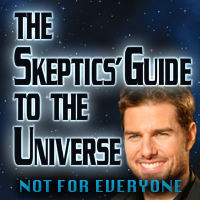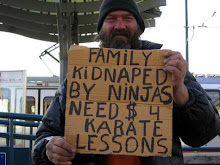I've been following a lot of stories on the death penalty lately, both as a local issue and in general. I'll freely admit to changing my opinion on the matter, just like a lot of my political opinions changed as I grew (both "older and "up"). Given that a recent call from the NRA reminded me that I'm still on a lot of Republican lists, I thought I might revisit some of the stances that cause me to no longer associate with that party.
The death penalty is, at it's heart, a visceral type of justice. It likely originated out of expediency; you can't trust someone who has committed a grievous crime against society to just not do it again. In tribal groups lacking prisons or even enough surplus to sustain a specialized law enforcement population, methods of justice had to be quick and definitive. A lot can be gleaned about a society by examining the circumstances in which it applied the death penalty. It has often been applied to property crimes, particularly involving livestock or other means of sustenance. The use in response to murder is an obvious example, both in primitive and modern societies. The punishment has often been applied to slights of reputation, often in societies where name and status were as important as wealth and possessions in terms of a person's livelihood.
With all those varying applications, the death penalty serves as probably the most definitive punishment available. There's no going back. It is the ultimate vengeance, particularly if, unlike myself, you believe in an afterlife involving punishment. Not only is the punished removed from this life, but they would likely face an eternity of torment on top of it. Of course, the opposite outcome may be true; they may just as well be on their way to a rewarding afterlife. However, I suppose the pragmatic afterlife enthusiast (or atheist such as myself) could rest on the fact that a penalty has been applied the one life we know the convict had.
Again, to point to the gut-level appeal of the death penalty, people are savage beasties. We want those that harm us to hurt. We want our wrongs redressed. Justice is fine, but our reptile brains want some vengeance as a side dish. I understand this, and I think most people do, too. There's a lot of animal structures in our brain and body that list violence as a viable option; the thin veneer of civilization and empathy holds us back.* Jon Stewart of the Daily Show recently covered this in an interview on torture; to want vengeance is to simply be human.
That's where the argument starts to fall apart, though. Vengeance and justice are not the same thing. Vengeance may not fix the problem at hand. Even worse, our legal system is fraught with cases where the wrong person is convicted. To me, that's where the death penalty becomes intolerable. Sure, we have an appeals system; however, what is one to do when potentially exculpatory evidence comes up after appeals are exhausted? There have been multiple cases of death penalty convictions on circumstantial evidence, eyewitness testimony (which is among the least reliable evidence possible), and even coerced confessions. Many of these have been turned over when other evidence came to light (often through the efforts of groups like the Innocence Project), but the fact that such cases even exist are enough to make me rescind and support of the death penalty. Not only is the actual criminal not paying for the crime, but an innocent person will lose their life. As noted above, I think that we only get one of those, so it's fairly important to conserve them where possible [/understatement].
I've seen people continue to defend the death penalty after this argument comes up. I can't grasp that. My question becomes, "What is the exchange rate between innocent and guilty executions?" How many real criminal lives is one good person worth? Is one innocent person per every twenty executions acceptable? One in ten? I've never gotten an answer I consider satisfactory. Not for simple vengeance.
In the end, I just can't support the death penalty anymore. Sure, when I see horrific crimes, I want to claw, gnaw, and kill -- but that's the animal, not the person. The person knows that there's more to it than that.
*One of my favorite books addresses how this applies in societies with highly formal systems of honor and etiquette, such as those found in the middle age Europe and Japan. It consisted of two characters discussing a system of courtesy that one was unfamiliar with. The first said something along the lines of, "Why are you always so polite and formal even with those you dislike?" The reply was, "It doesn't pay to be rude to a man carrying an axe."
Subscribe to:
Post Comments (Atom)






No comments:
Post a Comment